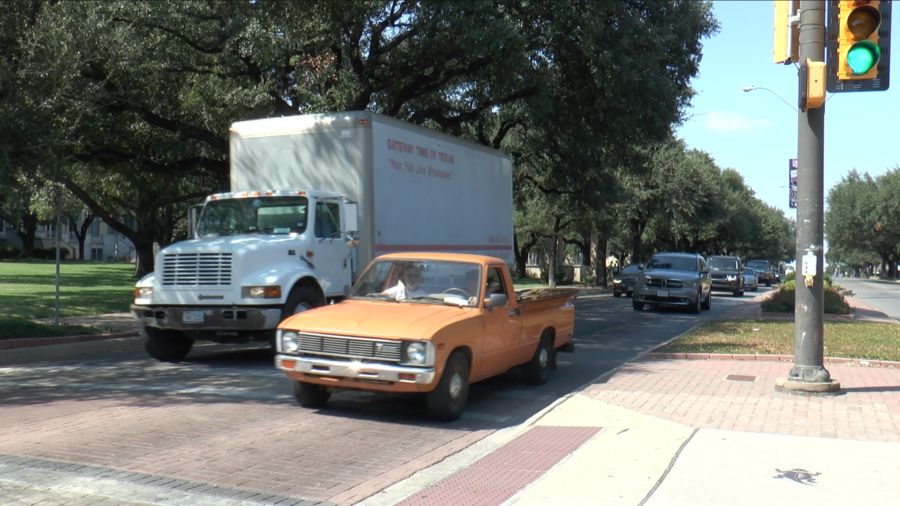Students who text and drive can now face harsher penalties if caught thanks to the new statewide ban on texting while driving. For many students, they know it’s dangerous, but they often do anyway. However, some are hopeful this new law will encourage others to kick the potentially deadly habit. “I definitely don’t condone it,” said Michael Thomas, senior sport psychology major. “Not only is it a safety issue for you, but it’s a safety issue for other people as well.” Jason Moss, motor officer of Fort Worth Police Department’s Traffic Division, said he believes that the new law wasn’t to punish people who text and drive but to make the roads safer. “I think the main concern was not the citation aspect or the traffic stops, but more general safety,” he said. According to the Texas Department of Transportation, 109,658 traffic crashes in Texas involved distracted driving, in which texting is one of the common causes. Those crashes also involved 455 deaths and 3,087 serious injuries. These crashes were the highest among people ages 16 to 34. Larkin Rich, junior child development major, said she doesn’t text while she drives because she wants herself and her passengers to be safe. “I try not to look at my phone because it’s a safety hazard,” she said. “And, I babysit a lot so I have children in my car a lot of the time.” Ijeg Jones, junior economics and psychology double major, said she supports the new law. “I don’t support [texting and driving],” she said. “I think it’s good that it’s a law that people shouldn’t because people will be less likely to do it.” The bill, named the Alex Brown Memorial Act after a 17-year-old Terry County high school student killed in 2009 while she was texting and driving, only applies to texting. Texas’ new law doesn’t prohibit using hands-free calling or the use of GPS, navigation and music apps. Moss said police are allowed to pull you over in suspicion of texting and driving but they can’t go investigate your phone to see if you were texting behind the wheel. “Essentially, your phone is your papers. And we can’t search through your papers without your consent or without a warrant or without probable cause, things like that,” he said. “So, I agree with that part of the law but it will make it tougher for us to enforce.” Moss added that even though the new law only prohibits texting and driving, people should still keep their eyes on the road and not their screens. “Anything in the vehicle could be a distraction,” Moss said. “We’re so used to the phones these days it’s almost multitasking, but you can get so lost in your phone. Just pay attention.” To see more of what Texas’ new texting ban entails, below is a copy of Texas House Bill 62:
Texas House Bill No. 62 (Enrolled) by Hunter Geisel on Scribd




